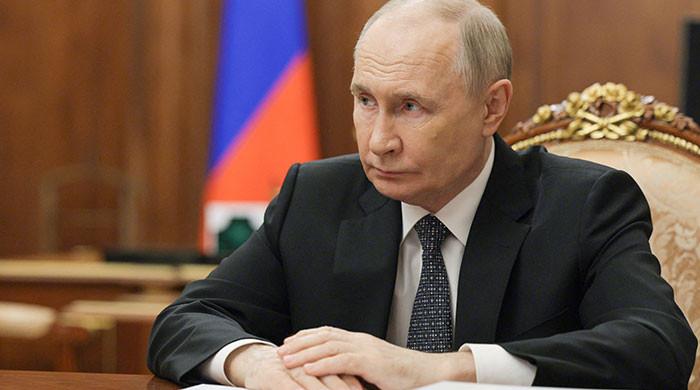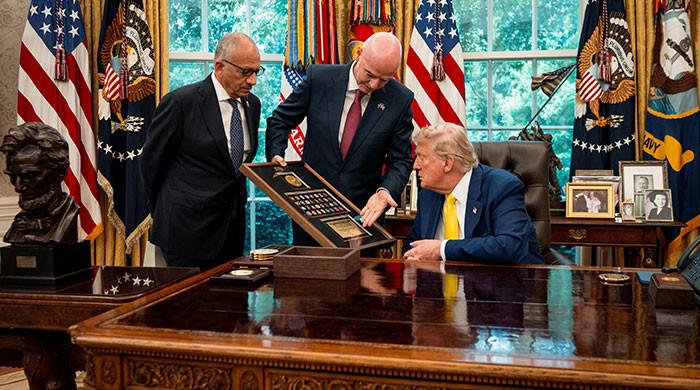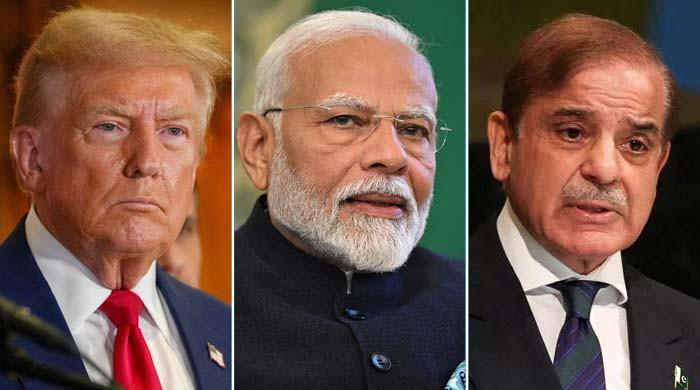European court rules against defaming Prophet Muhammad (PBUH)
Court says defaming Prophet Muhammad (PBUH) is beyond permissible limits of objective debate and freedom of expression
October 26, 2018

The European Court of Human Rights has ruled that defaming the Prophet Muhammad (PBUH) exceeds the permissible limits of an objective debate and freedom of expression as it can "stir up prejudice and put at risk religious peace".
The decision by a seven-judge ECHR panel came after an Austrian national identified as Mrs. S. held two seminars in 2009, entitled “Basic Information on Islam,” in which she defamed the Prophet Muhammad's marriage.
In February 2011, the Vienna Regional Criminal Court had convicted Mrs S. for disparaging religious doctrines, ordering her to pay a fine of 480 euros and the costs of the proceedings.
The decision was upheld by the Vienna Court of Appeal in 2011, and a request for renewal of proceedings was dismissed by the Supreme Court in 2013 before the case came to the ECHR.
According to a statement released by the court on Thursday, the ECHR panel found the conviction by the lower court in Austria was not in violation of Article 10 (freedom of expression) of the European Convention on Human Rights.
The court noted that those who choose to exercise the freedom to manifest their religion under Article 9 of the Convention could not expect to be exempt from criticism.
"They must tolerate and accept the denial by others of their religious beliefs. Only where expressions under Article 10 went beyond the limits of a critical denial, and certainly where they were likely to incite religious intolerance, might a State legitimately consider them to be incompatible with respect for the freedom of thought, conscience and religion and take proportionate restrictive measures," it ruled.
However, the Court noted that the subject matter of this particular case—defaming the Holy Prophet (PBUH)—was of a particularly sensitive nature.
It said the domestic courts in Austria had comprehensively explained why they believed the applicant's statements were capable of arousing justified indignation. It ruled that the statements "had not been made in an objective manner contributing to a debate of public interest", and that they could only have been aimed at defaming the Prophet (PBUH).
"The domestic courts carefully balanced the applicant's right to freedom of expression with the rights of others to have their religious feelings protected, and to have religious peace preserved in Austrian society," ruled the ECHR panel.
It ruled further that, even in lively discussions, it is "not compatible with Article 10 of the Convention to pack incriminating statements into the wrapping of an otherwise acceptable expression of opinion and claim that this rendered passable those statements exceeding the permissible limits of freedom of expression".
With respect to the punishment handed down by the Austrian court, the ECHR panel ruled that the criminal sanction was not disproportionate as Mrs S. was ordered to pay a moderate fine on the lower end of the statutory range of punishment.
"Under these circumstances, and given the fact that Mrs S. made several incriminating statements, the Court considered that the Austrian courts did not overstep their wide margin of appreciation in the instant case when convicting Mrs S. of disparaging religious doctrines. Overall, there had been no violation of Article 10," it ruled.











